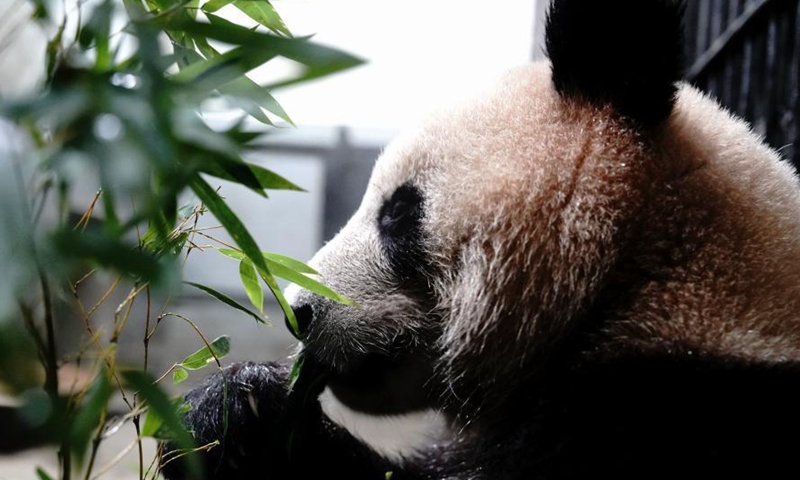
A giant panda feeds on bamboo after a health check at Shanghai Zoo in east China's Shanghai, March 1, 2021. Routine health checks are performed to ensure the physical health of the two giant pandas living at Shanghai Zoo.Photo:Xinhua
As the number of visitors to Chinese zoos picks up again this year following the COVID-19 pandemic, the zoos are striving to explore new sources of income to prepare for a similar difficult situation in the future.
Domestic zoos have been recovering as the pandemic has been brought under control. Nanjing Hongshan Forest Zoo in East China's Jiangsu Province suffered a loss of over 30 million yuan ($4.61 million) in 2020. But Shen Zhijun, director of the zoo, said that the tourist volume has increased a great deal, even compared with 2019, according to media reports.
Suzhou Shangfangshan Forest Zoo suffered losses of over 10 million yuan last year, but has also seen a tourist recovery since this year’s Spring Festival, partly thanks to the stay-put policy implemented across the nation to enhance epidemic control during the holidays, an employee surnamed Ji from the zoo told the Global Times on Tuesday.
Even so, the zoo is exploring diversified business models such as developing popular science courses on animals as well as cultural and creative products to increase its revenue, according to Ji.
“The loss of revenue during the period of closure was a universal problem for all the zoos last year and the cost of the normal operation of the zoo such as the expenditure on animal feed, maintenance of the plants and employees’ salaries cannot be avoided. Thus, the zoo has to work out more channels to increase revenue,” Ji said.
Nantong Forest Safari Park, also in Jiangsu, relies on local government support and did not suffer quite so much during the pandemic, an employee surnamed Li from the zoo told the Global Times on Tuesday.
However, it has also developed more than 20 human-animal interaction projects, such as feeding pigeons and observing animals by boat to attract tourists, Li said.
Meanwhile, the Shanghai Zoo has organized various parent-child activities to increase its revenue.
